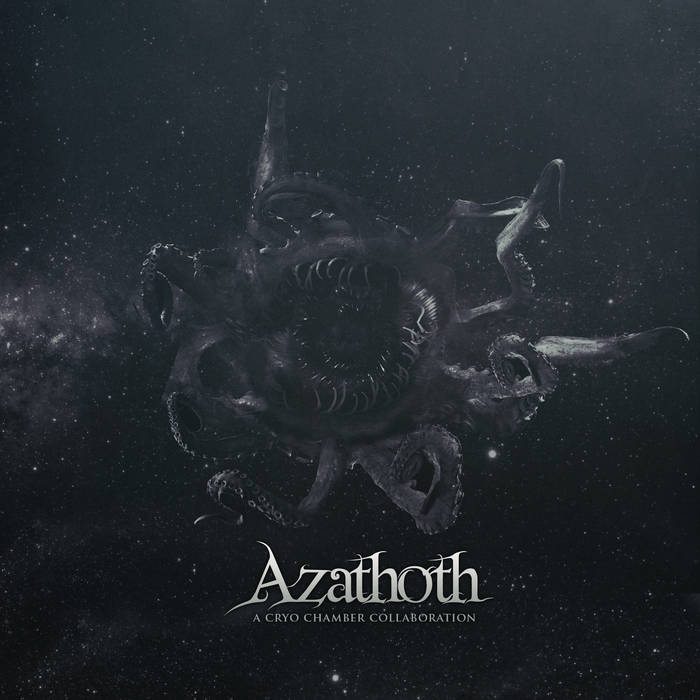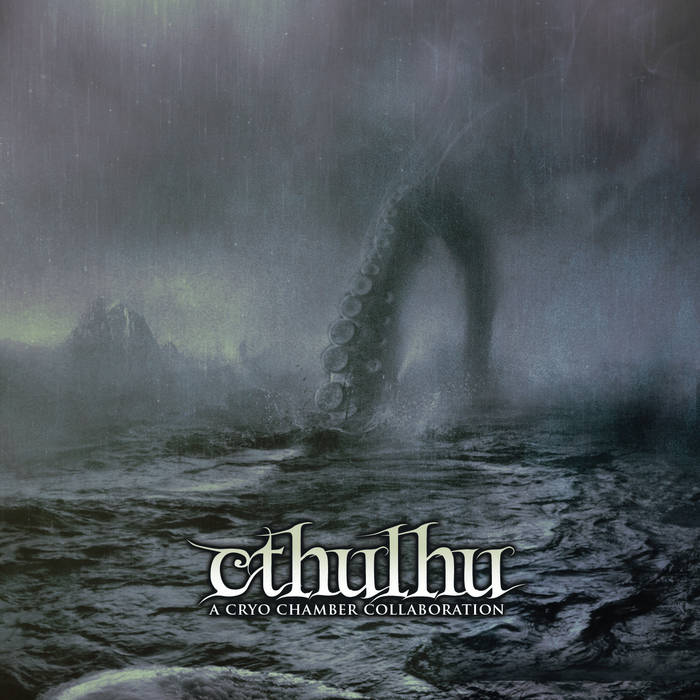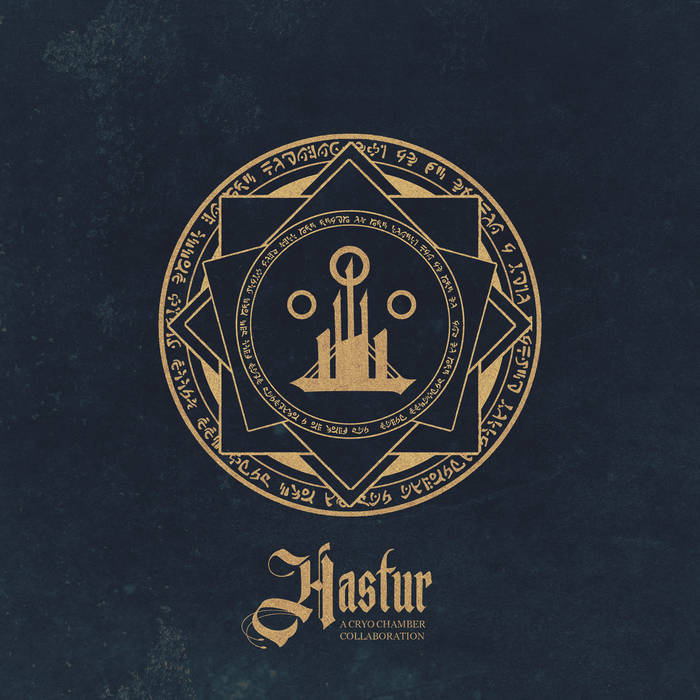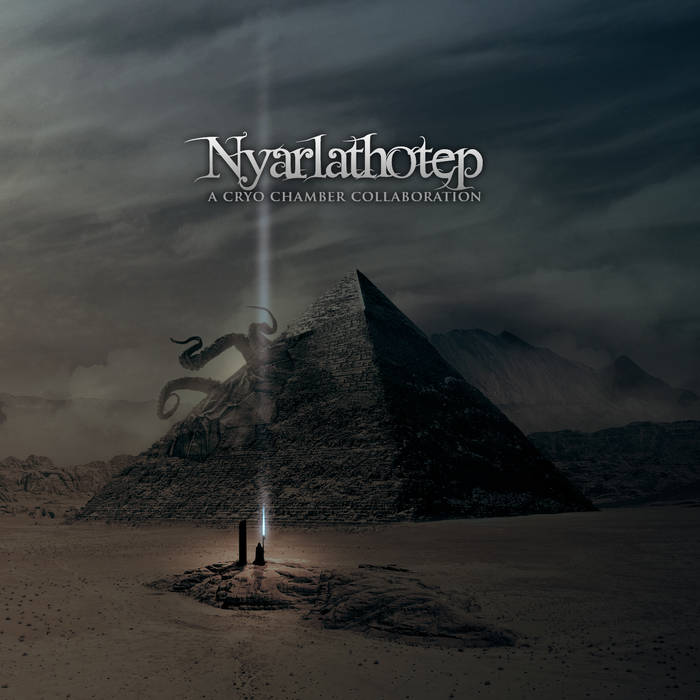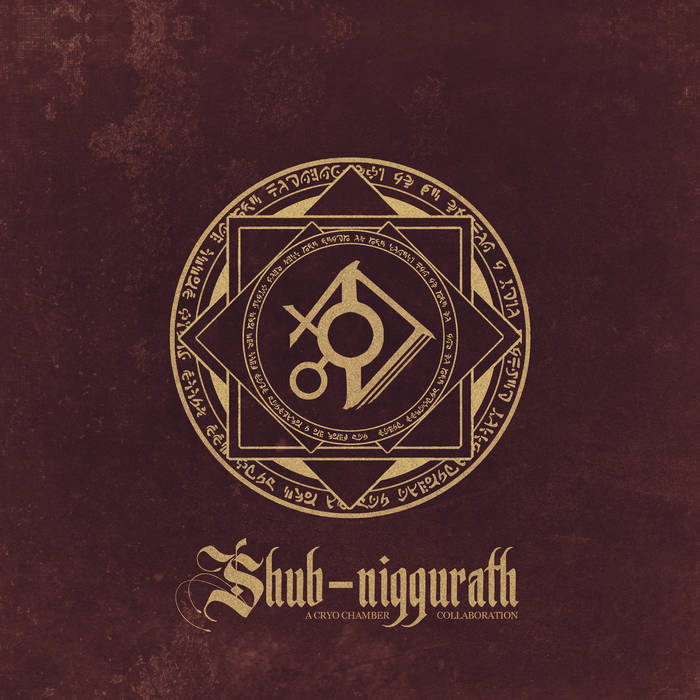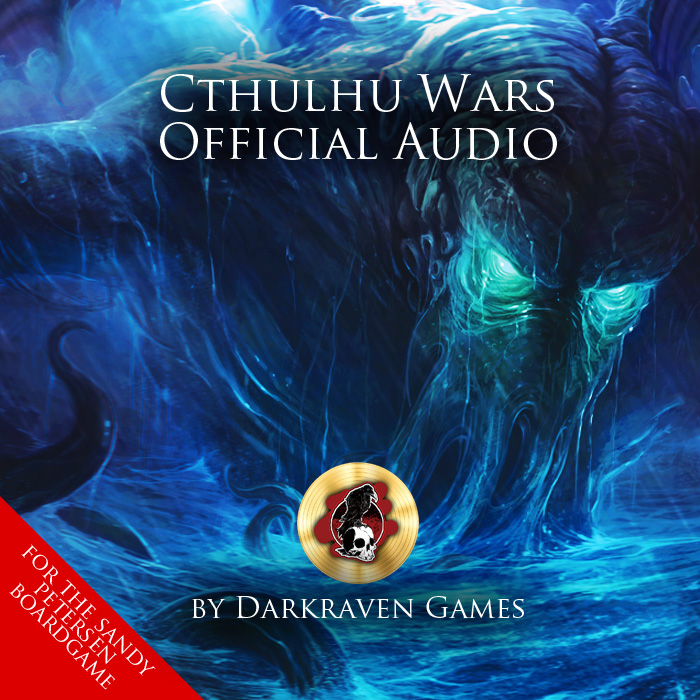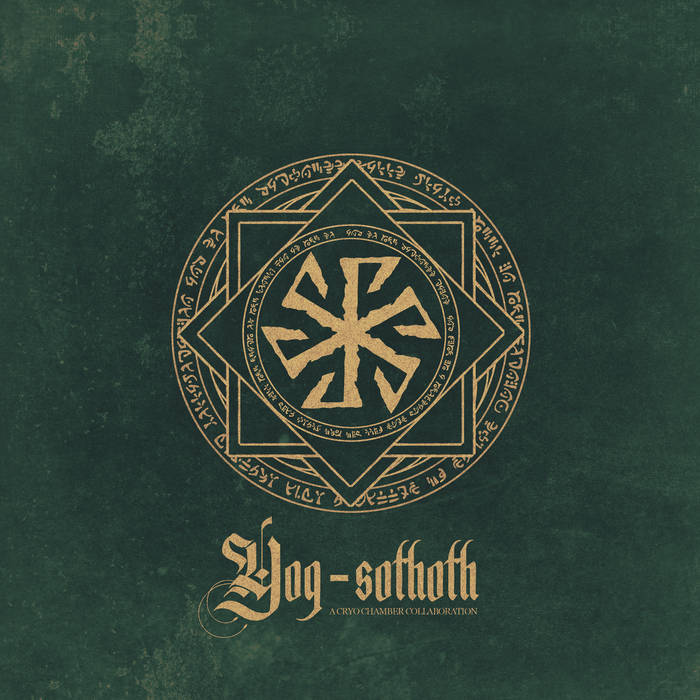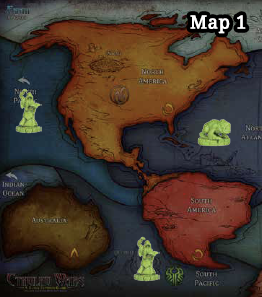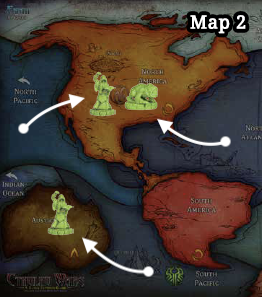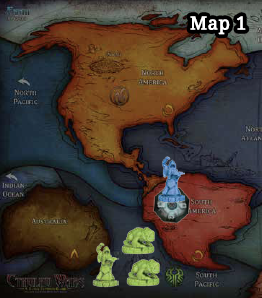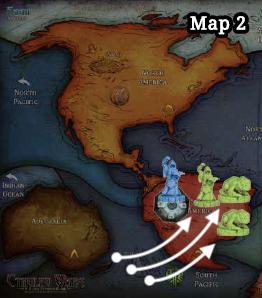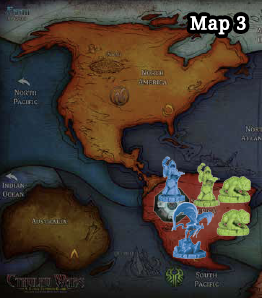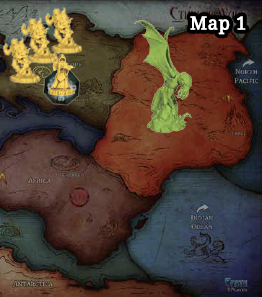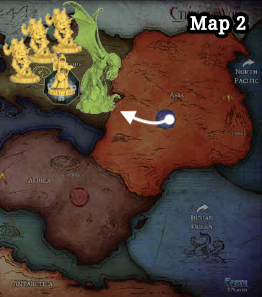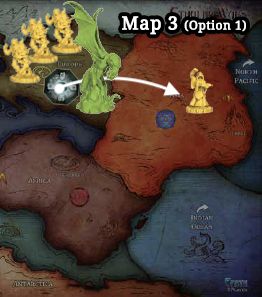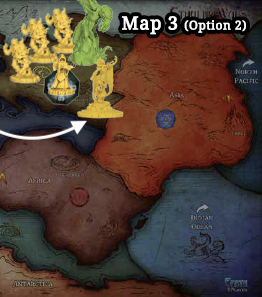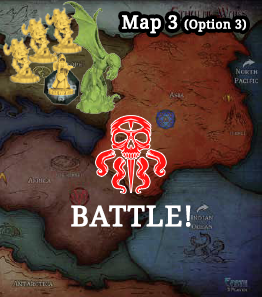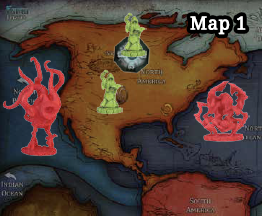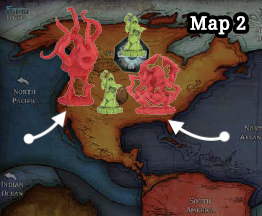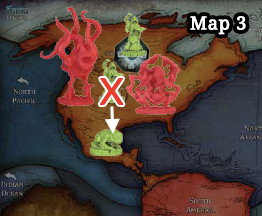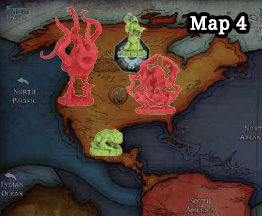The Recruit Cultist Action allows you to place a Cultist from your Pool onto the Map. One of your Units must be in the Area into which you Recruit the Cultist. This Unit can be of any type (another Cultist, a Monster, or even a Great Old One). If you have no Units on the Map, you do not need to have a Unit in the Area into which your Cultist will be Recruited. This allows you to return to play even if you have been wiped off the Map.
You may only Recruit 1 Cultist per Recruit Cultist Action.
The Summon Monster Action allows you to place a Monster from your Pool onto the Map. You must Control a Gate in the Area into which the Monster is Summoned. Pay the Monster’s Cost (found on your Faction Card), and place it on the map.
You may only Summon 1 Monster per Summon Monster Action.
Sometimes an ability will allow you to place a Monster on the Map (such as Yellow Sign’s Desecrate Action, or Great Cthulhu’s Devolve Spellbook). These do not count as Summon Monster Actions not necessarily require a Gate in the Area.
The Awaken Great Old One Action allows you to bring your Great Old One into play. Just as each Great Old One itself is unique, so is the way in which each is placed on the Map. Your Faction Card has a series of steps (always at least two), that must be done to Awaken your Great Old One. All of these steps combined comprise the Awaken Great Old One Action.
You may only Awaken a single Great Old One per Awaken Action. Of course, most Factions only have a single Great Old One.
Once your Great Old One is in play, its Special Ability is now available to use. If your Great Old One leaves play, its ability will not be available to Old One has been Awakened once again.
Tips:
Since a Great Old One can be “Killed” (after which it must be re-Awakened), do not bring it out before you can protect it with other Units. Two exceptions are the King in Yellow and Cthulhu (comparatively) inexpensive to replace.
To Create a Gate in an Area, you must have a Cultist in that Area and a Gate must not already be present there; only one Gate can ever exist in any Area. Pay 3 Power, and place the Gate. You may immediately place your Cultist atop the Gate to indicate that it is Controlled by you. (Technically, this is a use of the Unlimited Control Gate Action, detailed here).
You may only Create 1 Gate per Create Gate Action.
To Move Units, spend 1 Power for each Unit you wish to Move. A Unit may move from its current Area into an adjacent one. Movement is very flexible: you can Move Units from several different Areas into a single Area, or from a single Area into several different ones, or any combination you please.
To Battle another Faction, choose any Area in which you and an enemy Faction both have at least one Unit. If more than one enemy Faction has Units present, you may only choose a single Faction to fight; all other Factions in the Area are merely idle bystanders.
In Battle, each side will roll dice equal to their Combat totals and inflict results upon each other. Combat totals are determined by totaling the Combat ratings (found on your Faction Card) of your Units in the Battle. You must have at least 1 Combat on your side in order to declare a Battle. You may Battle an enemy who has 0 Combat.
You may only Battle once, and in one Area, per Battle Action. Battle has several other rules ristics, all of which are detailed here.
The Capture Cultist Action is a means of removing enemy Cultists from the Map and then later sacrificing them to your Great Old One to gain Power. A Captured Cultist is Eliminated, and is therefore no longer in play. However, unlike a normal Elimination, it does not immediately return to its Faction’s Pool until the next Gather Power Phase (providing the Faction who Captured it with 1 Power). To signify that a Captured Cultist is not in play nor in its Faction’s Pool, place it on your own Faction Card.
To Capture an enemy Cultist, you must have a Monster or Great Old One in the same Area as that Cultist. However, the enemy Cultist you wish to Capture cannot have a protector in the same Area. Cthulhu Wars has a pecking order of protectors. Great Old Ones outrank Monsters, which in turn outrank Cultists. A Great Old One can Capture an enemy Cultist, unless the target is protected by its own Great Old One in the Area. A Monster can capture an enemy Cultist, unless the target is protected by its own Monster (or Great Old One). Cultists cannot capture Cultists. Note that even a single Monster protects a Cultist against any number of enemy Monsters that may wish to Capture it.
You may only Capture 1 enemy Cultist per Capture Cultist Action.
If there is more than one Cultist in the Area, the player whose Cultist is being Captured chooses which one is Captured. (Thus, you do not have to allow a Gate-Controlling Cultist to be Captured, unless it is the last remaining Cultist in the Area.) Your Monster or Great Old One will never protect another Faction’s Cultist from Capture by a third party. Only Monsters a Cultist’s Faction can protect it.
Note:
Even if even if a Cultist has a Combat rating, or a Capturing Monster has a Combat of 0, the Cultist can still be Captured. Capture is not Battle, and Battle abilities do not apply.
Avoiding Capture by Monsters
Avoiding Capture by a Great Old One
Remember:
Monsters with Combat 0 are surprisingly useful. They can protect Cultists from being Captured by other Monsters, they can Capture Cultists themselves, and they can be assigned as casualties in Battle, sparing more expensive Units.
